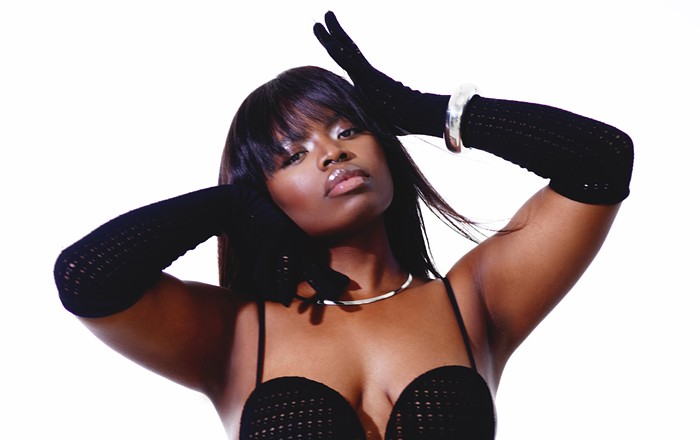WHEN YOU GET Frank Fairfield to open up on his thoughts about the history of song, old 78s, and the commercial music industry, he doesn't hold back. It's an impressive feat, belying the gentle aura of his disposition, falling right in line with the passion he exudes while plucking away on banjos, fiddles, and old gee-tars. Those who've heard Fairfield's music—he doesn't consider it his in any capacity—can make out the tones of a living specter swiped from the railroad ghost towns and coal mine hamlets of the '30s and '40s, everything dusty and crackling. Seeing Fairfield in the flesh does little to dissuade that image, with high-waisted pants, a tucked-in collared shirt, and a pomade-stiff coif. It's tempting to want to infer an aesthetic to what Fairfield is doing, to assume a kind of throwback revivalism is afoot. But that's just patently false. In Fairfield's world, none of that even crosses his radar, a fact easily discerned while chatting with him.
"I'm just someone who plays music," Fairfield says, deadpan. "A songwriter is someone who writes songs for a living, and I don't write songs for a living."
Fairfield cut his teeth busking at farmers' markets and sidewalks in and around Los Angeles, where he still resides, traveling by bicycle with a fiddle and banjo to play mostly obscure, down-home music that only a select few musical authorities might recognize. His 2009 self-titled debut and his 2011 recording Out on the Open West exposed his allegiances to pre-Depression blues, soul, jazz, and folk. As perhaps an unintended primer of his influences, Fairfield also released a compilation of rare 78 recordings—of which he's an enthusiastic collector—through his own imprint Pawn Records, titled Unheard Ofs & Forgotten Abouts, a project he's busy revisiting for another upcoming release. His encyclopedic knowledge of recorded relics stems from his devotion to a time when "the people's music," as he calls it, wasn't marketed to sell something. These are songs that people sing, he says. They're for everybody.
"There was a small period of time where actual people's music was being recorded commercially," Fairfield explains. "That's completely gone. There was a time when some of the biggest music companies were recording everybody from the grand opera to the bums on the street to some crazy ornithologist who whistled bird songs. After World War II, they decided rather than give everybody back their own culture they'd manufacture one for everybody. That way they've only gotta sell one product."
Fairfield doesn't care for rock 'n' roll, the trappings and tribulations of the music industry, or much of what passes for music in the popular arena. Still, his relative obscurity was lessened in 2009 after being handpicked by Fleet Foxes to open their nationwide tour, some memorable sets at Pickathon in 2009, and more recently a club tour opening for Cass McCombs.
The reality of Fairfield's anti-hipster existence, juxtaposed with the singularity of his passions, has manifested into a strange charisma for the 26-year-old.
"I don't care about individuality," Fairfield says. "I think that's a myth. I'm just a kid. I'm still trying to... I at least want to be a man one day. I don't know if that's a very popular ambition anymore, to wanna grow up and wanna be a respectable man. But I do. I want to be a man."



















